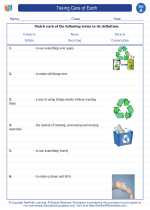Taking Care of Earth -> natural resources
Natural Resources
Natural resources are materials or substances that occur in nature and can be used for economic gain. These resources can be classified into renewable and non-renewable resources.
Renewable Resources
Renewable resources are those that can be replenished or replaced relatively quickly. Examples of renewable resources include sunlight, wind, water, and forests. These resources are essential for sustaining life and can be utilized without the fear of depletion.
Non-renewable Resources
Non-renewable resources, on the other hand, are finite and cannot be easily replenished. Examples of non-renewable resources include fossil fuels (coal, oil, natural gas) and minerals. These resources take millions of years to form and will eventually be depleted if consumed at a rapid rate.
Study Guide
- What are natural resources?
- Give examples of renewable resources.
- What are non-renewable resources? Provide examples.
- Why is it important to conserve natural resources?
Understanding the concept of natural resources is essential for appreciating the Earth's valuable assets and the importance of sustainable utilization.
.◂Science Worksheets and Study Guides First Grade. Taking Care of Earth

 Worksheet/Answer key
Worksheet/Answer key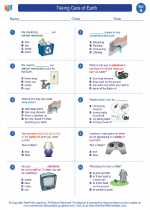
 Worksheet/Answer key
Worksheet/Answer key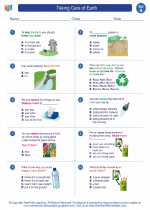
 Worksheet/Answer key
Worksheet/Answer key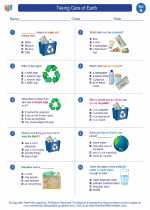
 Vocabulary/Answer key
Vocabulary/Answer key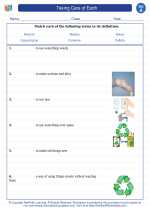
 Vocabulary/Answer key
Vocabulary/Answer key